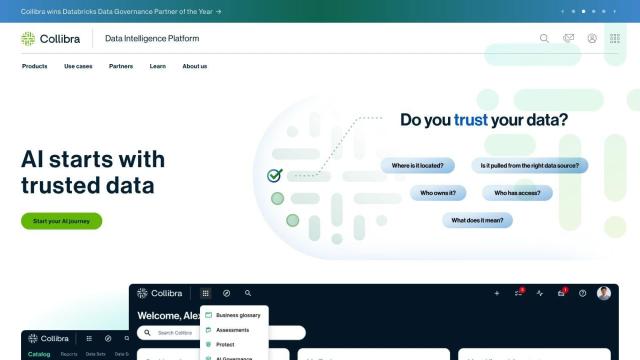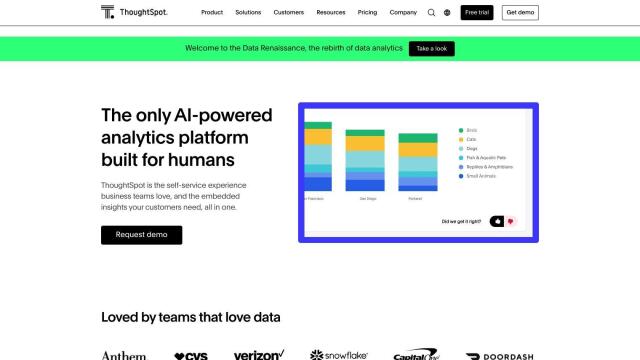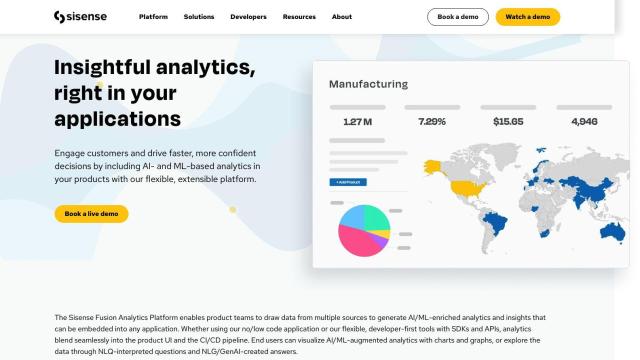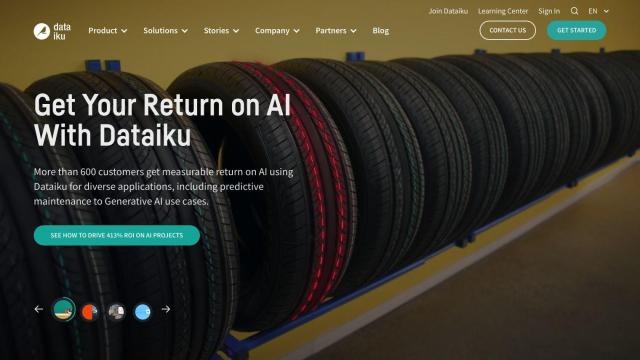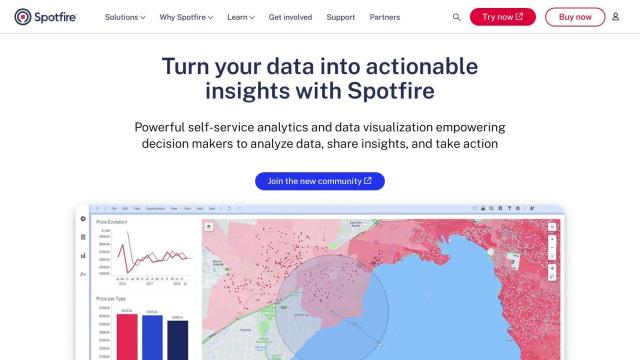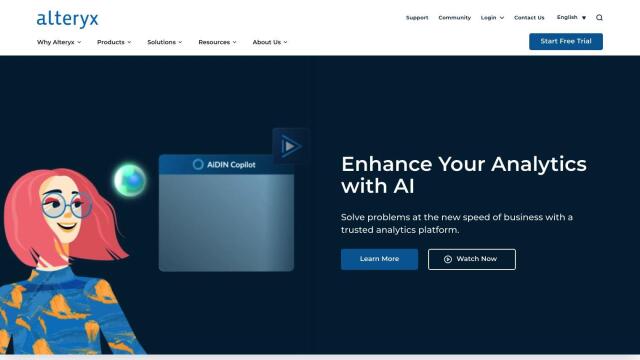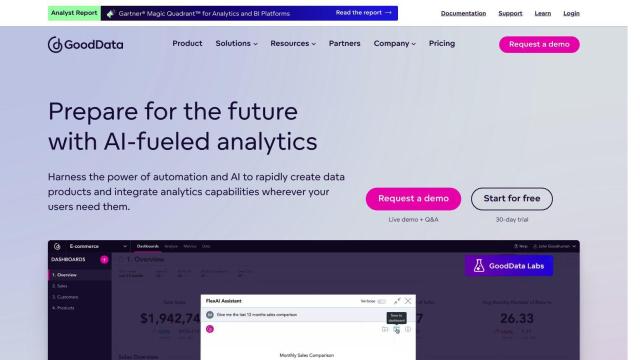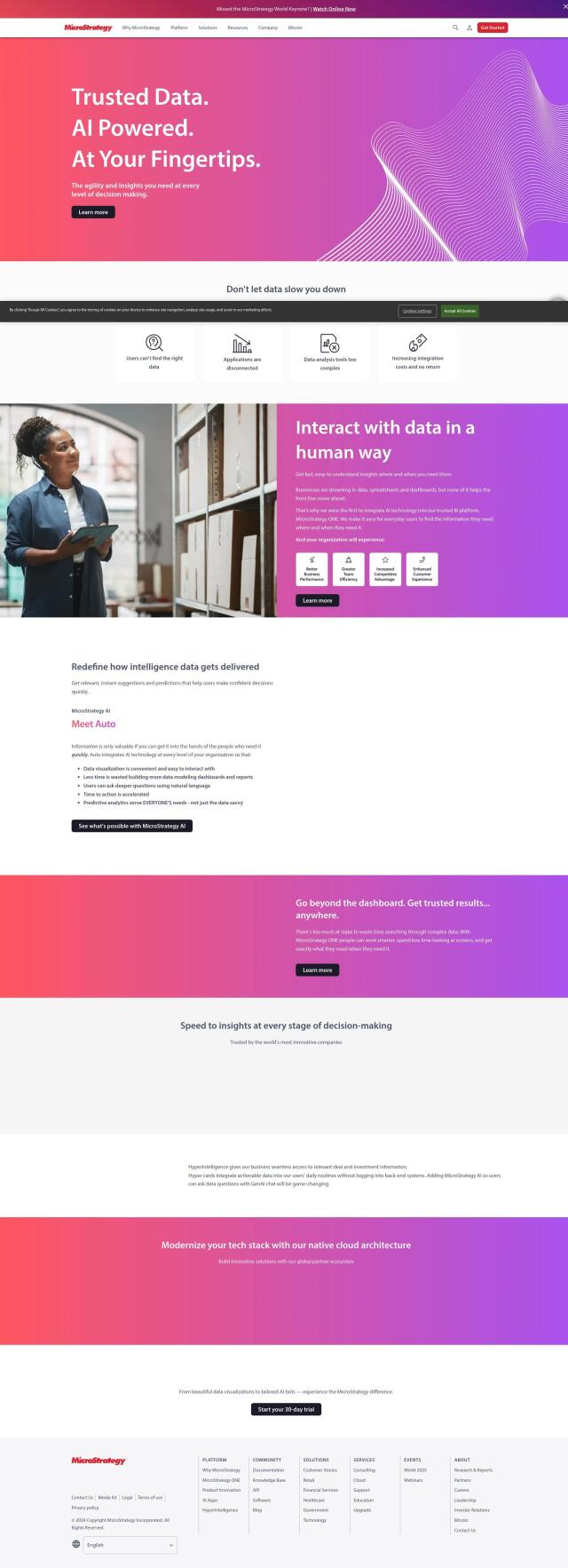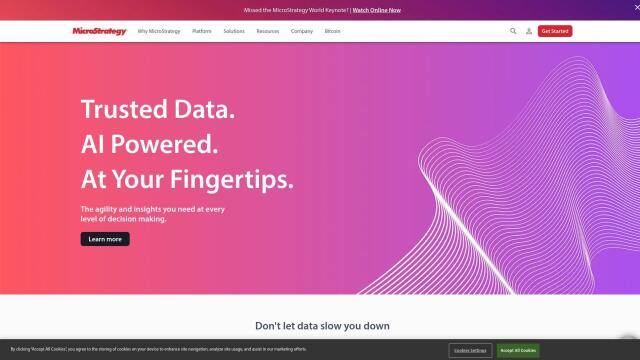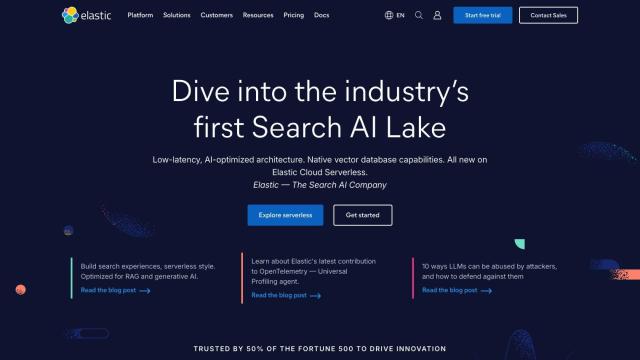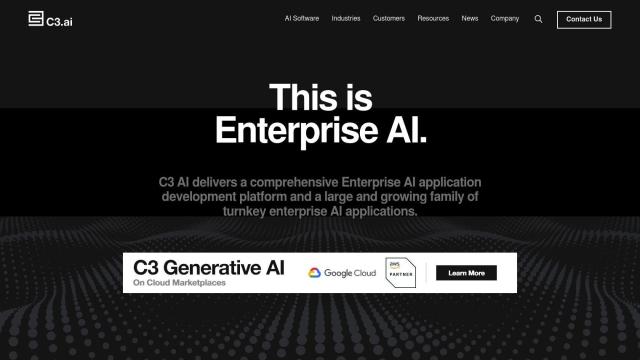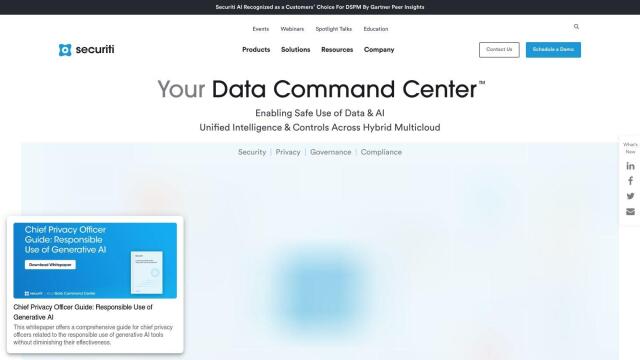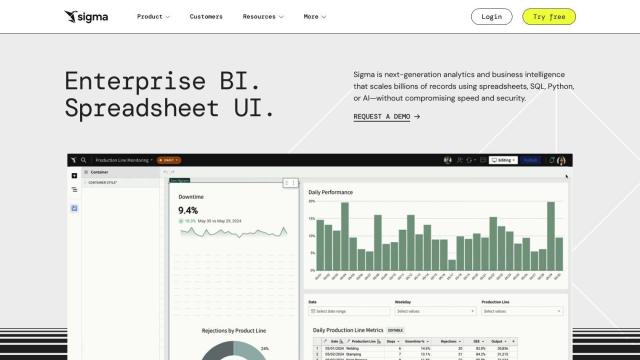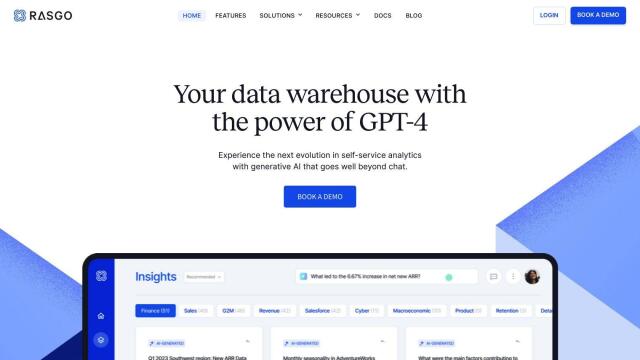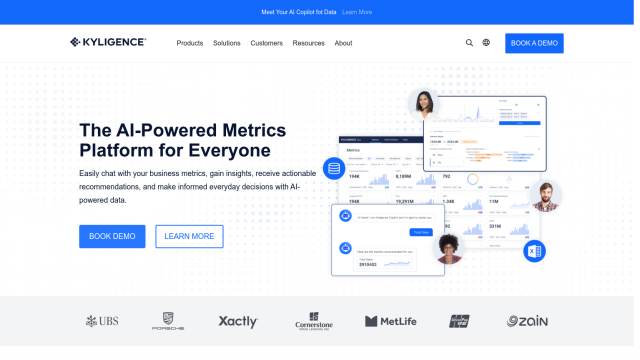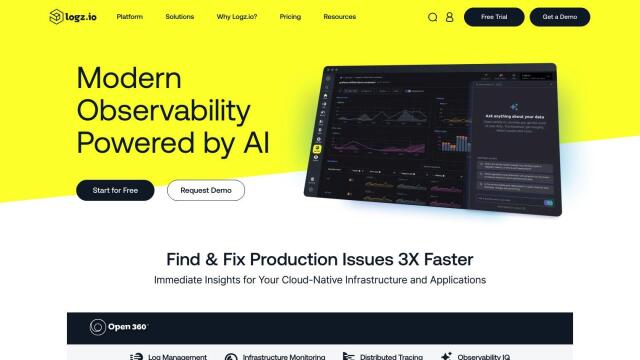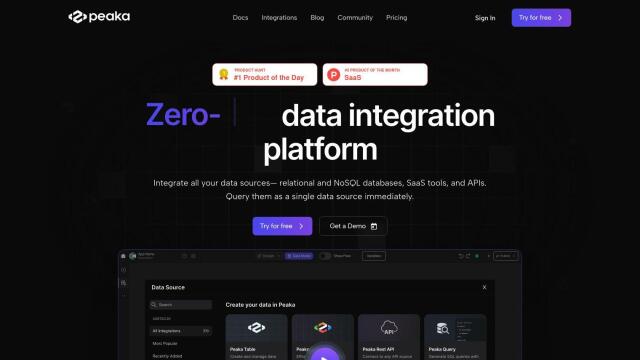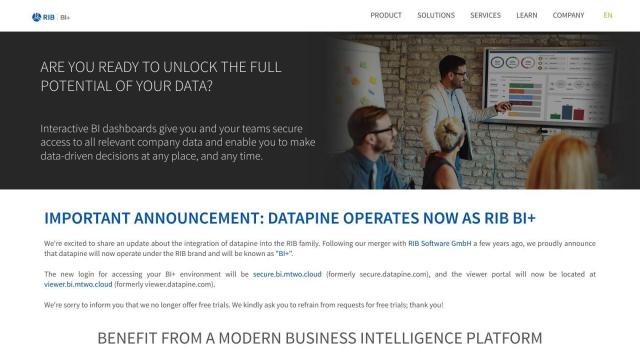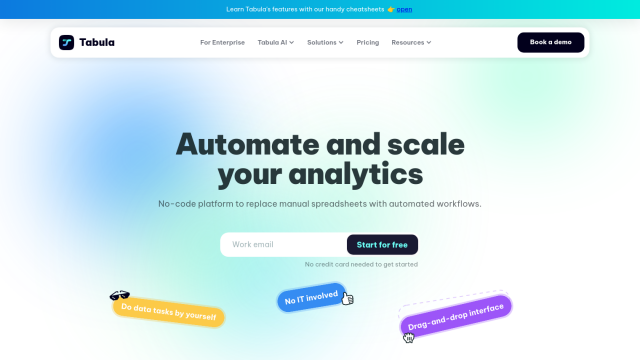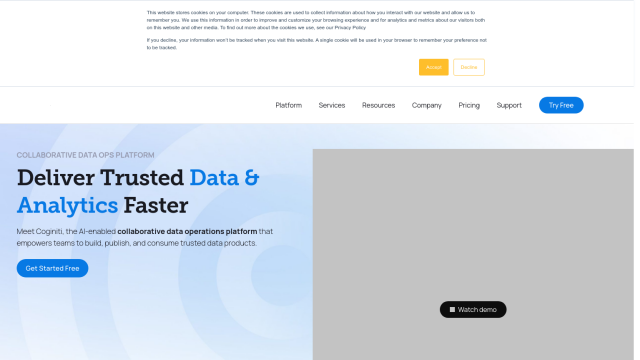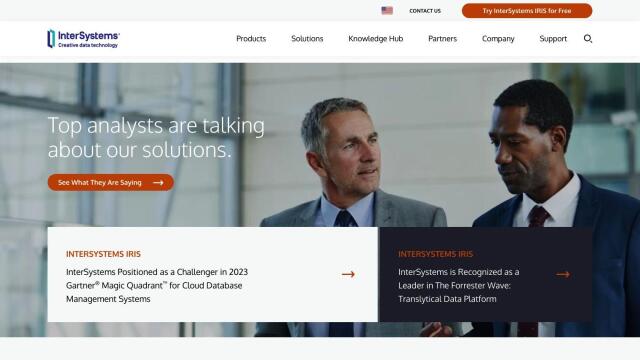Question: Can you recommend a solution that centralizes control and integrates with various platforms and data sources to track key performance indicators?

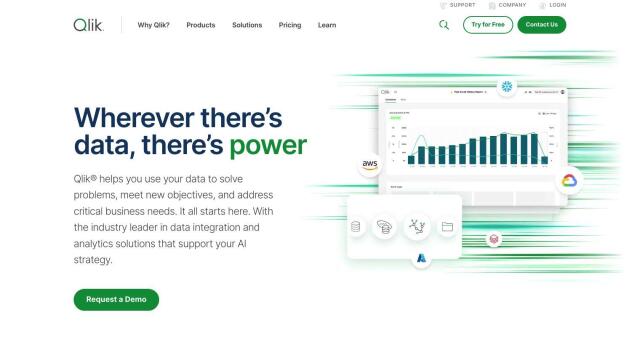
Qlik
If you're looking for a more complete answer to centralizing control and linking to different platforms and data sources to monitor key performance indicators, you might want to check out Qlik. Qlik has a broad suite of products for data integration, analytics and artificial intelligence. It connects to hundreds of data sources and offers a broad data fabric with data streaming, application and API integration, data lake creation and AI-infused analytics. Qlik's broad suite of products and connectors means it can be used in many different industries and roles.

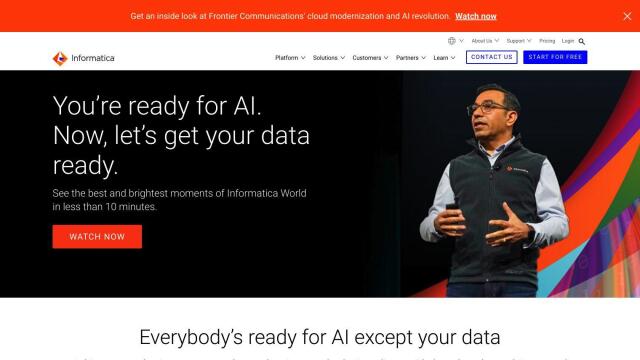
Informatica
Another contender is Informatica, a cloud-based, AI-infused data management platform. It integrates data across multi-cloud and hybrid environments with features like data catalog, data integration and MDM. Informatica's CLAIRE AI engine automates data integration tasks and ensures data is handled securely and reliably. The platform spans many industries with flexible pricing and is good for companies trying to modernize their data management.

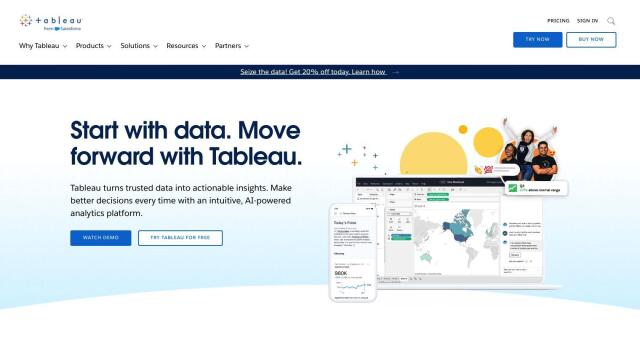
Tableau
Tableau is another strong contender for business intelligence and analytics. It connects to a broad range of databases and offers a drag-and-drop interface for creating visualizations. Tableau works in the cloud, on premises and in Salesforce CRM, and offers AI/ML abilities, governance and collaboration tools. Its community-based approach and multiple pricing tiers make it a good fit for teams and companies.

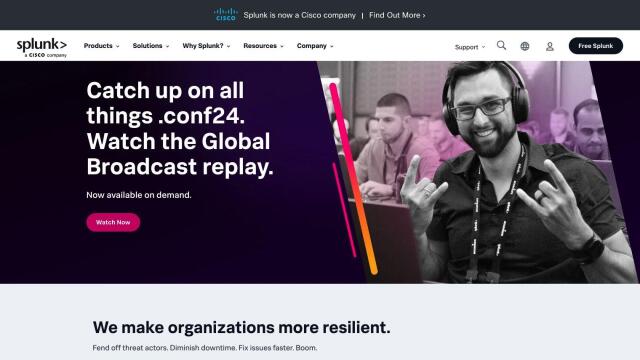
Splunk
For those who need to focus on security and observability, Splunk is a unified platform with AI abilities for threat detection, investigation and response. It offers full-stack observability and works in hybrid cloud environments, so it's good for big and complex organizations. Splunk's pricing is flexible to match business needs, so it should scale as data grows.

